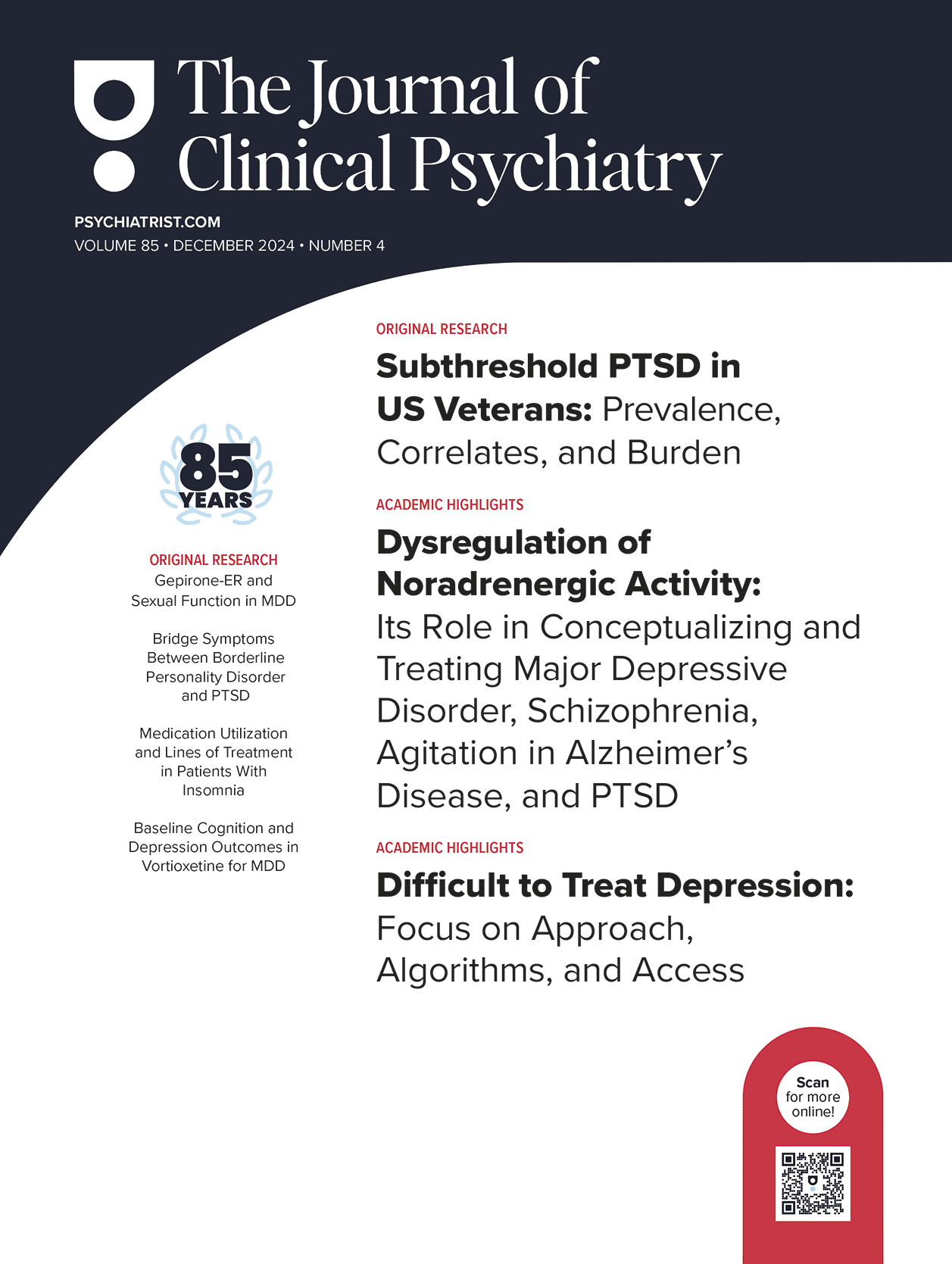Objective: Owing to the prevalence of medication side effects and treatment resistance, prescribers often consider off-label uses of US Food and Drug Administration (FDA)-approved agents for the treatment of persistent symptoms. The authors review the available literature on the FDA-approved and non-FDA-approved uses of lamotrigine in adults with psychiatric disorders.
Data Sources: We used PubMed, MEDLINE, and a hand search of relevant literature to find studies published between 1990 and 2012 and available in English language. The following keywords were searched: lamotrigine, psychiatric, mood disorders, depression, personality disorders, anxiety, schizophrenia, side effects, and rash.
Study Selection: Data were selected from 29 randomized controlled trials (RCTs). When RCTs were not available, open-label trials (6), retrospective case reviews (10), and case series (4) were summarized.
Data Extraction: We extracted results of monotherapy and augmentation trials of lamotrigine on primary and secondary outcome measures.
Results: Lamotrigine is generally well tolerated, with the best evidence for the maintenance treatment of bipolar disorder, particularly in prevention of depressive episodes. In acute bipolar depression, meta-analyses suggested a modest benefit, especially for more severely depressed subjects, with switch rates similar to placebo. In unipolar depression, double-blind RCTs noted benefit on subsets of symptoms and improved response in more severely depressed subjects. Data are limited but promising in borderline personality disorder. Use of lamotrigine in schizophrenia and anxiety disorders has little supportive evidence.
Conclusions: Lamotrigine is recommended in bipolar maintenance when depression is prominent. It also has a role in treating acute bipolar depression and unipolar depression, though the latter warrants more research. Data are too limited in other psychiatric disorders to recommend its use at this time.
J Clin Psychiatry 2013;74(7):675-684
© Copyright 2013 Physicians Postgraduate Press, Inc.
Submitted: July 25, 2012; accepted November 28, 2012 (doi:10.4088/JCP.12r08046).
Corresponding author: Michael J. Gitlin, MD, 300 UCLA Medical Plaza, Ste 2347, Los Angeles, CA 90095 ([email protected]).
Continue Reading...
Did you know members enjoy unlimited free PDF downloads as part of their subscription? Subscribe today for instant access to this article and our entire library in your preferred format. Alternatively, you can purchase the PDF of this article individually.
Please sign in or purchase this PDF for $40.00.
Save
Cite
Already a member? Login

